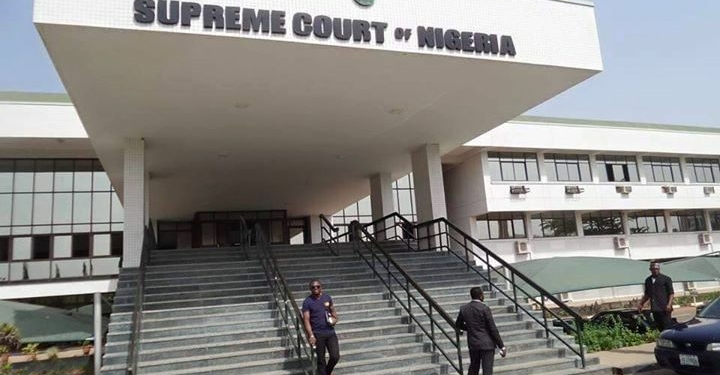- Says the banknotes should remain in circulation, pending when the Federal Government, after due consultation with relevant stakeholders, takes a decision on the matter
The Supreme Court has ruled that both the old and the redesigned Naira banknotes remain valid legal tenders in the country beyond December 31.
The apex court, in a ruling by a seven-man panel led by Justice Inyang Okoro, on Wednesday, said the banknotes should remain in circulation, pending when the Federal Government, after due consultation with relevant stakeholders, takes a decision on the matter.
It made the order after hearing an application that was moved on behalf of the federal government by the Attorney-General of the Federation and Minister of Justice, Prince Lateef Fagbemi, SAN.
It will be recalled that the court nullified on March 3 the ban on the use of the old N200, N500, and N1000 banknotes as valid legal tenders by the President Muhammadu Buhari-led administration.
The court held that the old Naira notes should be used alongside the redesigned currencies until the end of the year.
In its lead judgement that was prepared and delivered by Justice Emmanuel Agim, the apex court slammed the FG for unilaterally introducing the demonitization policy through the Central Bank of Nigeria, CBN, without consulting the Council of States, the Federal Executive Council, the National Security Council, the National Economic Council, Civil Society Organizations and other relevant stakeholders.
It held that the FG failed to give valid notice to all the federating units before it decided to withdraw the old banknotes from circulation and introduce new ones.
The Supreme Court maintained that evidence before it established that a purported notice on the monetary policy was through “mere press remarks” by governor of the CBN, Mr. Godwin Emefiele.
It held that such remarks did not qualify as “reasonable notice” to the states as envisaged under section 20(3) of the CBN Act.
Besides, the court invalidated the directive President Buhari gave in the broadcast he made on February 16, which allowed only the old N200 note to remain a legal tender until April 10.
While accusing President Buhari of disobeying the interim order it made on February 8, which directed that the old banknotes should remain in use till the determination of the case before it, the apex court stressed that the President, by going ahead to ban the old banknotes, acted in a way that was inimical to democratic governance.
According to the court, having acted in disobedience to its order, FG lost its right to be granted an audience before it.
Following the end of the last administration, the President Bola Tinubu-led government re-applied to the Supreme Court for an indefinite extension of its December 31 deadline.








Discussion about this post